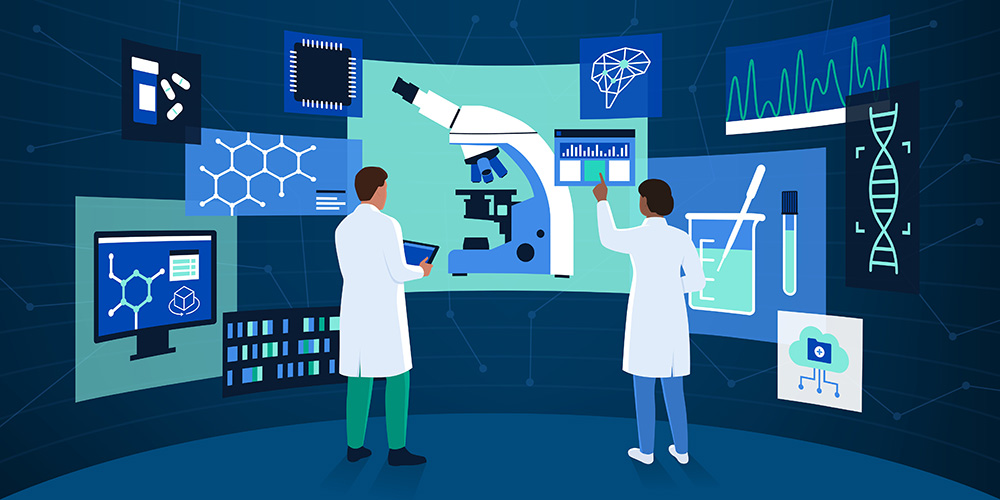The U.S. leads the world when it comes to registration and execution of clinical trials, according to data from the World Health Organization (WHO). Every year, it registers over 160,000 clinical trials in WHO’s International Clinical Trials Registry Platform, twice as many as the runners-up China and Japan. This figure accounts for over a fifth of all registered clinical trials.
Why is this so? Its substantial investment in technology is a major factor in its dominance in medical research. As per the 2021 World Index on Healthcare Innovation published by the Foundation for Research on Equal Opportunity, the country produces more medical innovations than anywhere else despite its ‘fiscally unsustainable’ healthcare model.
Such a level of investment is also reflected in clinical trials, such as how a clinical trial software platform integrates and automates multiple processes. Knowing the impact of technology should be a no-brainer, but it’s worth exploring in-depth.
The catalyst
History has shown that innovation stems from the need to solve an impossible problem. Just as the wheel and axle solved the problem of transporting heavy loads over land, penicillin became the solution for many then-incurable diseases.
Regardless, there’s no need to look far into technology’s growing role in clinical trials. In health emergencies that involve highly infectious diseases, researchers are prompted to develop new ways to conduct clinical trials remotely. Some of the new approaches they adopt include the following:
- Mobile or home nursing
- Investigational product home delivery
- Local and mobile laboratory testing
- Telemedicine/telehealth
- Remote clinical outcome assessment
- Remote data collection and patient monitoring
Telehealth is a term that often comes up regarding this subject. Doctor-patient communication through digital devices has become the norm as of late. This is because the lack of physical contact mitigates the transmission of pathogens.
Several clinical trials that have started or are expected to start in the following years will be fully based on telehealth and other remote technologies. A potent example is one by cancer researchers at Ohio State University for testing therapies for pancreatic cancer sometime in late 2023.

Wearables
Smart wearables are among the healthcare trends showing promise besides telehealth. One report by the Health Information National Trends Survey estimates that one-third of Americans use a wearable device, such as vital monitors and activewear. Of the wearers, 80% said they’re willing to share data with their doctors if it would help keep their health in check.
Despite the rising demand for wearables, their adoption in clinical trials has been slow. This can be attributed to several factors, from the innate distinction between drug development and design engineering to compliance with applicable healthcare and data privacy laws.
Regardless, multiple papers stress the importance of adopting such technologies for several good reasons, not least of which is patient recruitment. For a clinical trial to be medically acceptable, it must have a large enough sample size, depending on the study. However, around 80% of clinical trials worldwide get prolonged due to not meeting their recruitment goals.
Proponents stress that harnessing data from wearables opens a wealth of opportunities for future trials. The technology can form the core of decentralized clinical trials (DCTs), which some experts have voiced support for since the pandemic. These trials can collect data through any or a combination of the approaches mentioned earlier.
Wearables can assist researchers in aiding recruitment goals in DCTs without having the patient visit them regularly. It’s a major upside for patients in rural areas, who have to travel an average of 23.9 miles to the nearest healthcare facility.
Artificial intelligence (AI)
The pharmaceutical industry understands there won’t be any time to wait should a new disease come around. In response, drug companies are investing in the creation and training of AI models for clinical trials. Between 2016 and 2022, the FDA received hundreds of applications for AI-based drug development systems.
Similar to wearables, AI in clinical trials is far from being widespread. However, the industry is confident in its ability to learn using billions of electronic health records and other forms of data to find specific patterns.
One report states that AI and automated systems can accelerate pre-trial drug development by up to one year and produce suitable candidates more often. However, accelerated drug development might not matter if the AI works on flawed data.
Conclusion
The 2021 Global Health Security (GHS) Index reckoned that the world remains dangerously unprepared for future health emergencies of great magnitude. But despite this grim forecast, the amalgamation of clinical trials and modern technology brings hope. The impact of clinical trial software and other hardware is nothing short of significant, and it’ll remain that way moving forward.





